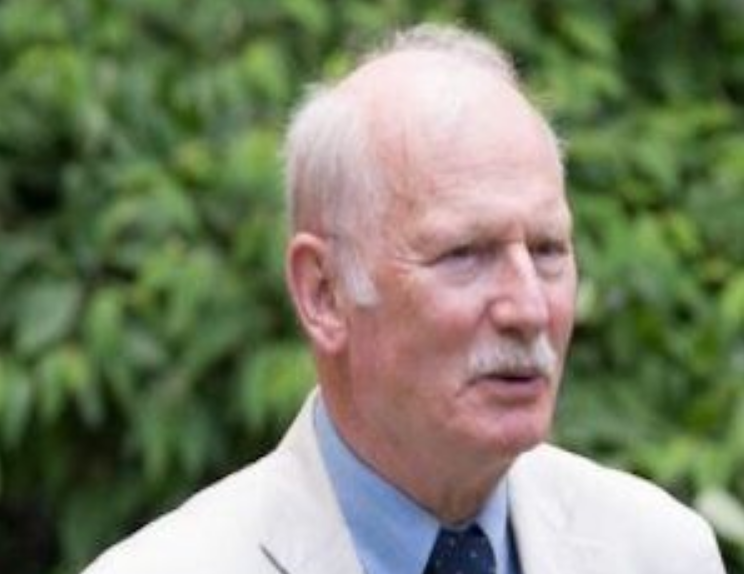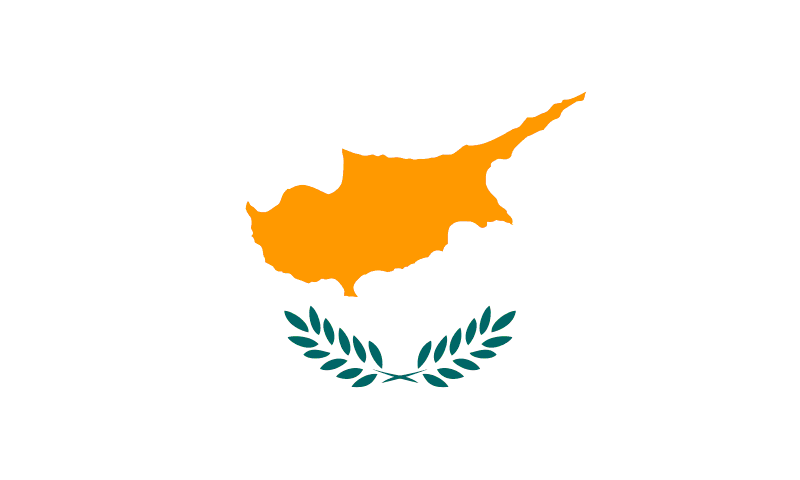This column first appeared at PoliGazette.
A Firebell in the Night: The Prospect of Turkey’s Membership Sounds the Knell for the European Union
By Robert Ellis
Thomas Jefferson, in a memorable letter written in 1820, considered the issue of slavery “a firebell in the night” which would toll the knell of the Union. It is with the same sense of foreboding that some of us today consider the issue of Turkey’s membership of the European Union.
In the winter issue of the Middle East Quarterly, which deals with Turkey’s Islamist danger, Bassam Tibi concludes: “Western politicians, scholars, and opinion makers barely understand what is going on inTurkey”. This view is borne out by, for example, Condoleeza Rice’s statement in May 2007 that the AKP (Justice and Development Party) government is “a government dedicated to pulling Turkey west towardEurope” and last March the Swedish foreign minister, Carl Bildt, declared: “The AKP government is made up of profound European reformers”.
Turkey’s long road towards EU membership began with associate status in 1963 and it was not until the EU summit in Helsinki in 1999 that its candidacy was recognized. Beginning in 2001 under the premiership ofBülent Ecevit, Turkey embarked on a series of reforms to get the green light from the EU to start accession negotiations. These reforms included a revision of the civil and penal codes, a dilution of the role of the military and greater freedom to use Kurdish in the public sphere.
Despite the fact that these reforms for the most part existed on paper, in October 2004 the EU Commission found that Turkey had “sufficiently” fulfilled the political crtiteria for membership and recommended that negotiations be opened. In October 2005 negotiations were formally opened, after a great deal of wrangling over the recognition of (Greek) Cyprus, which became a member together with nine other states in May 2004.
However, in starting negotiations the EU left the back door open, concluding that “if Turkey is not in a position to assume in full all the obligations of membership, it must be ensured that Turkey is fully anchored in the European structures through the strongest possible bond.” Since then, the enthusiasm forTurkey’s membership has waned considerably on both sides.
The UK, which played a major role in brokering the start of entry talks, has under US tutelage always been an active proponent of Turkish membership. So much so that when Turkey’s Constitutional Court last July decided not to ban the AKP, the British foreign secretary, David Miliband, declared it was “a cause for celebration”.
It is the same Miliband, who in´a keynote speech in Bruges in November 2007 outlined his vision forEurope in 2030. He is clearly delusional when he speaks of a European Union that would ultimately include the countries of the Mahgreb, the Middle East and Eastern Europe. In his own words: “The goal must be a multi-lateral free-trade zone around our periphery …. not as an alternative to membership but potentially as as step toward it.”
A community of values
Quite apart from the formal criteria for EU membership, it has been repeatedly stressed that the Union is a community of values. After the start of entry talks the British foreign secretary, Jack Straw, rejoiced: “It means we have a Europe based on values, not history”, and earlier Olli Rehn, the EU’s enlargement commissioner, explained that Europe was defined by values, not borders. However, in the light of Turkey’s development since the AKP came to power in 2002, it can be argued Turkey is no longer eligible.
A blueprint for dismantling the secular republic established by Mustafa Kemal in 1923 was put forward by Omer Dincer, Prime Minister Erdogan’s former undersecretary, at a symposium held in Sivas in 1995. Two years earlier 37 people, most of them participants in an Alevi cultural festival, were killed in a hotel fire, when the hotel was burned down by a raging mob of Islamic fundamentalists.
At the symposium Omer stated: “I believe that the republican regime in Turkey should be replaced by a more participatory one, and the principle of secularism should be replaced with integration with Islam. Therefore I believe that it’s time, and absolutely necessary, to replace all the fundamental principles outlined at the start of the Turkish Republic, such as secularism, republicanism and nationalism, with a structure that is more participatory, more decentralized and more Muslim.”
The same year Abdullah Gül, deputy leader of the Islamic Welfare Party (banned in 1998) and now Turkey’s president, was more succinct in an interview with The Guardian. “This is the end of the republican period,” he stated. “If 60 percent of Ankara’s´population is living in shacks, then the secular system has failed and we want to change it. “
And this is precisely what these “reformed post-Islamists” (Olli Rehn’s term) have set out to do, despite the fact that the preamble to the Turkish constitution stipulates: “there shall be no interference whatsoever by sacred religious feelings in state affairs and politics”.
Anti-secular activities
Last July Turkey’s Constitutional Court found by 10 votes to one that the AKP was “a focal point of anti-secular activities” but instead of closing the party decided to halve its Treasury funding. In its indictment the Court paid close attention to controversial statements made by party members, but there is ample evidence of the reorientation of Turkish society in the last six years.
Since coming to power, the AKP has made systematic and sustained efforts to replace the top echelons of the state administration, the education system and the judiciary with its own followers. Two years ago an attempt to appoint the general manager of Albaraka Turk, an Islamic bank, as governor of the central bank, was vetoed by President Ahmet Necdet Sezer, a staunch secularist, as “inappropriate” but the AKP has otherwise placed its own candidates in key positions.
The autonomy of independent administrative authorities such as the Energy Market Regulatory Authority (EPDK) and the Capital Markets Board (SPK) has also been eroded. For example, the EPDK awarded an oil refinery construction permit to the Calik Group, where Prime Minister Erdogan’s son-in-law is the general manager, and not a prior applicant, Petrol Ofisi. Petrol Ofisi is owned by Aydin Dogan, who is also the owner of the Dogan Media Group, the Prime Minister’s outspoken opponent.
The sale of the Sabah-ATV media group, Turkey’s second largest, also to the Calik Group, was facilitated by the Savings Deposit Insurance Fund (TMSF), which is staffed by AKP appointees, and was for the most part financed by a loan from two state banks, also managed by AKP appointees.
The new head of the Higher Education Board (YÖK), Yusuf Ziya Özcan, was handpicked, which together with a pliable president makes it possible to overrule the universities’ own choice of candidate as rector.
Furthermore, the president of the Supreme Board of Radio and Television (RTÜK), Zahid Akman, is embroiled in a scandal which could overwhelm the government. In September the three Turkish directors of a charitable foundation in Germany, Deniz Feneri (Lighthouse), were found guilty of siphoning off €14.5 million ($20.6 million) and transferring the funds to business associates in Turkey, including Kanal 7, the Islamist tv channel.
The operation is believed to have been directed from Turkey and Zahid Akman was named as a courier. However, although four months have elapsed, no steps have been taken to require the documents fromGermany and to launch an investigation in Turkey. In addition, a recent law requires the prime minister’s consent into any investigation into an RTÜK president.
The general elections of 2002 and 2007 provided for the establishment of the AKP’s political power but it was the Public Procurement Laws of 2003 and 2008 which have made possible a transfer of resources to the new elite. According to the first amendment energy, water, transportation and telecommunications contracts are exempt from the law and new amendments have made the awarding of public contracts even less opaque.
There have been a number of land and tender scandals involving members of the AKP, but as acerbic columnist Burak Bekdil has pointed out: “Corruption is an ideology-free disease.” For example, almost 100 municipal employees, including two district mayors from the CHP, the opposition party, were recently detained in a corruption and bribery operation in Izmir province.
Neighbourhood pressure
Two years ago Professor Serif Mardin, the eminent Turkish sociologist, coined the phrase “neighbourhood pressure” to explain the social pressure to conform to conservative religious norms. Last month a controversial study, “Being different in Turkey”, published by the Open Society Institute and BosphorusUniversity, in fact confirms that the non-devout and secularists in Turkey feel under pressure to confirm to the social norms and standards promoted by the AKP.
Among the examples given are pressure to attend Friday prayers and fast during Ramadan and to have their wives wear a headscarf in order to protect their businesses and their jobs. When Tayyip Erdogan was mayor of Istanbul 15 years ago alcohol was banned at municipal facilities but now in 56 of Turkey’s 81 provinces alcohol is not served in municipal or private restaurants or clubs. During Ramadan last September anAnkara shop owner was beaten by municipal police for selling alcohol.
In November 2005 the European Court of Human Rights upheld the ban on the wearing of the Islamic headscarf at Turkish universities and underlined: “Pluralism, tolerance and broadmindedness are hallmarks of a democratic society.” Prime Minister Erdogan contested this view and stated that it was only Islamic scholars (‘ulema’) who had the right to speak on this issue.
Egemen Bagis, AKP deputy for Istanbul and close associate of Tayyip Erdogan, has just been appointed chief EU negotiator in an attempt to revive Turkey’s flagging hopes of membership. It was this gentleman who in an op-ed piece in the LA Times, “My party is good for Turkey”, last March claimed: “We are only upgrading the country’s democratic standards.”
Unfortunately there are a number of European and American politicians and opinion makers who are prepared to indulge this Alice in Wonderland fantasy. Therefore it would be prudent to heed Bassam Tibi’s warning: “Through its support for institutional Islamism in Turkey, the West loses its true friends: liberal Muslims.”
Robert Ellis is a regular commentator on Turkish affairs in the Danish press and was also a frequent contributor to the Turkish Daily News.
 Sweden’s Minister for International Cooperation Development, Gunilla Carlsson, has confirmed in a joint article together with Turkey’s Minister for EU Affairs, Egemen Bagis, Sweden’s full support for Turkey’s bid for EU membership.
Sweden’s Minister for International Cooperation Development, Gunilla Carlsson, has confirmed in a joint article together with Turkey’s Minister for EU Affairs, Egemen Bagis, Sweden’s full support for Turkey’s bid for EU membership.


